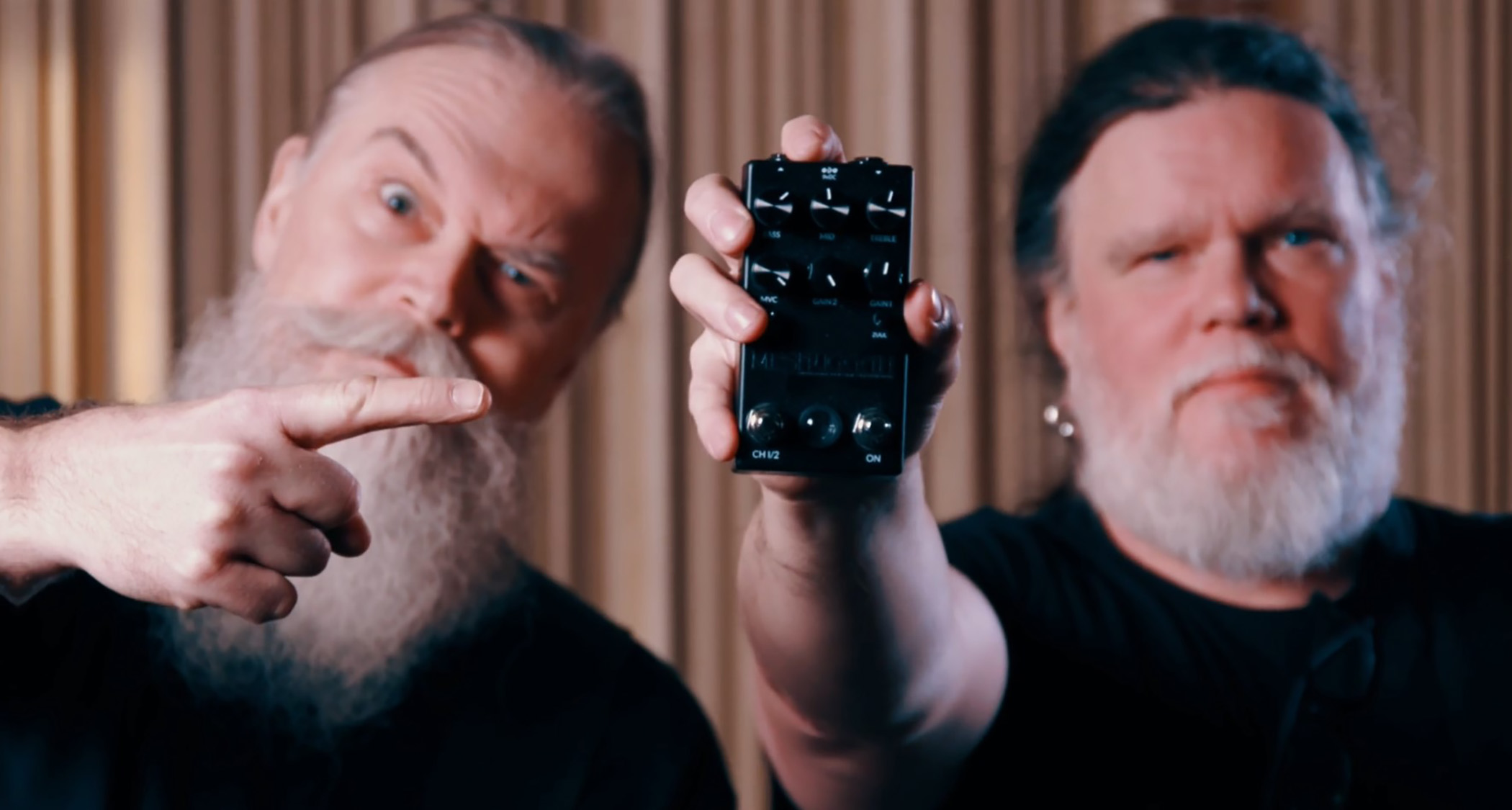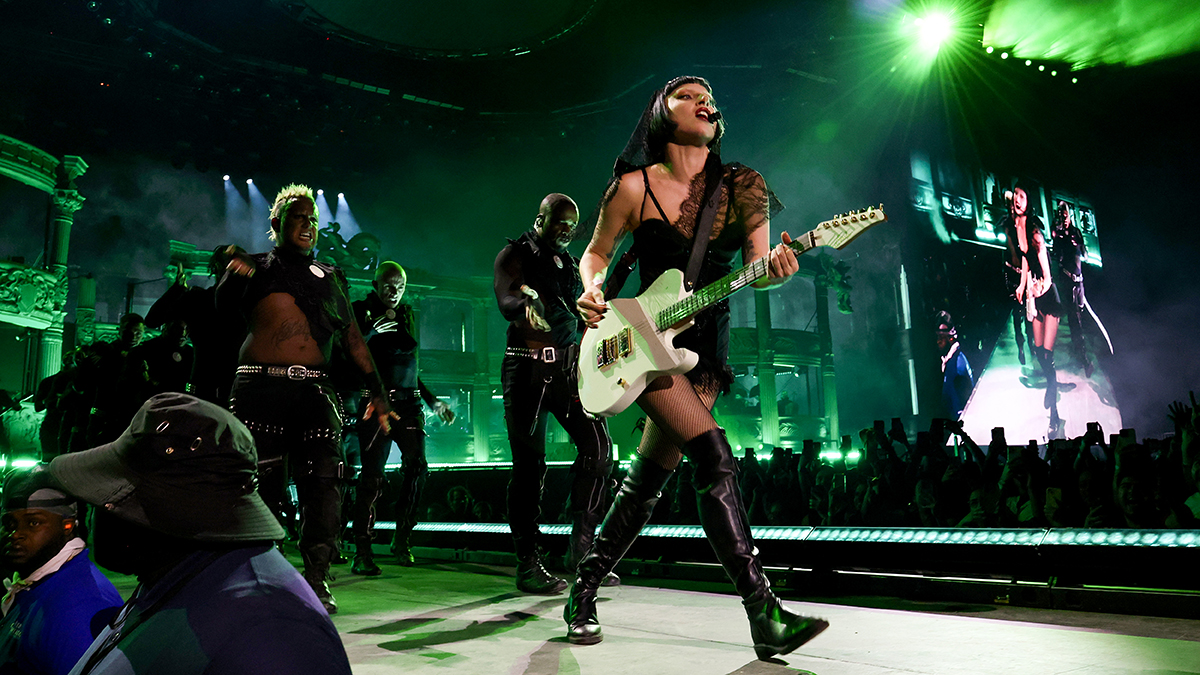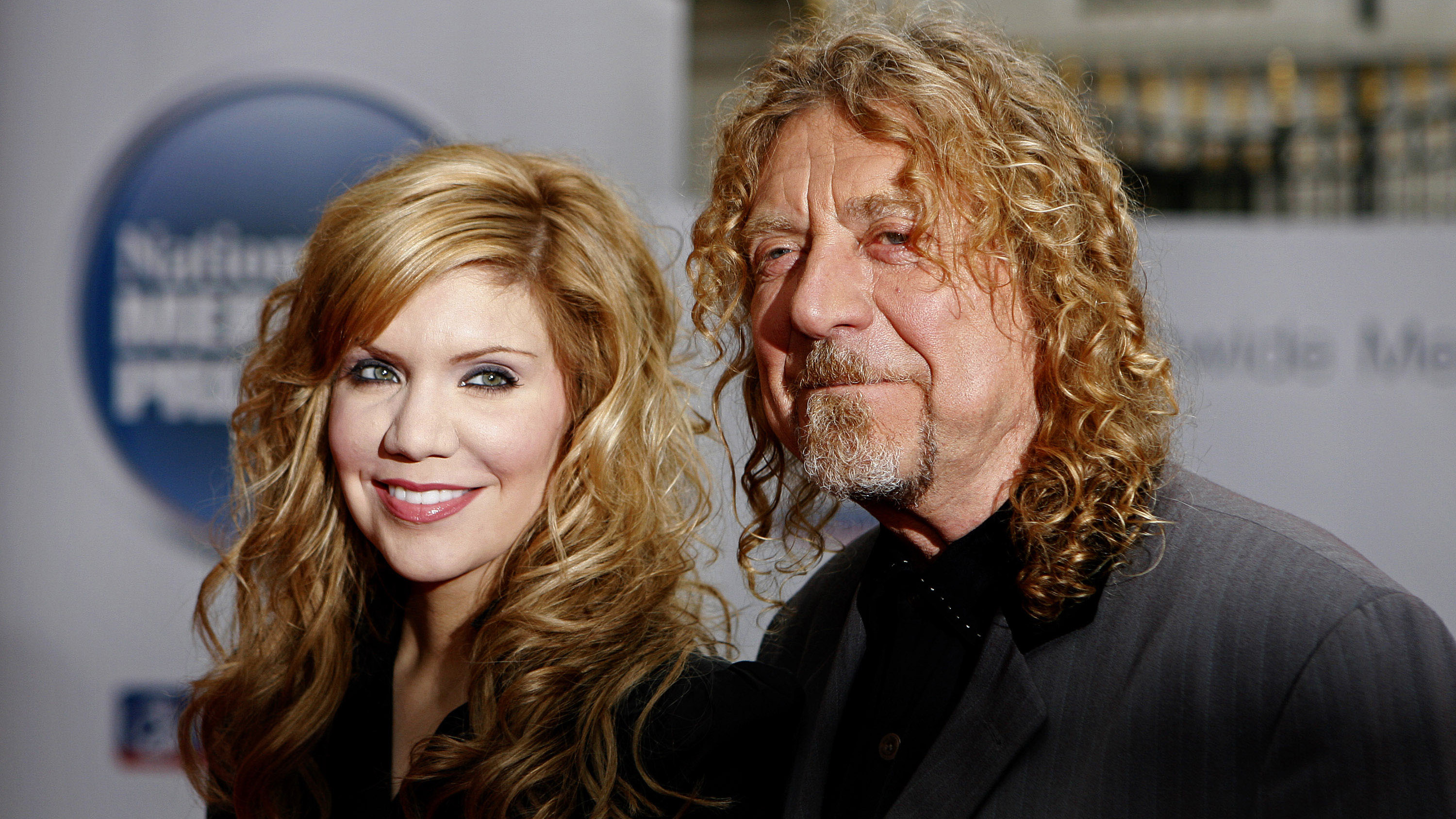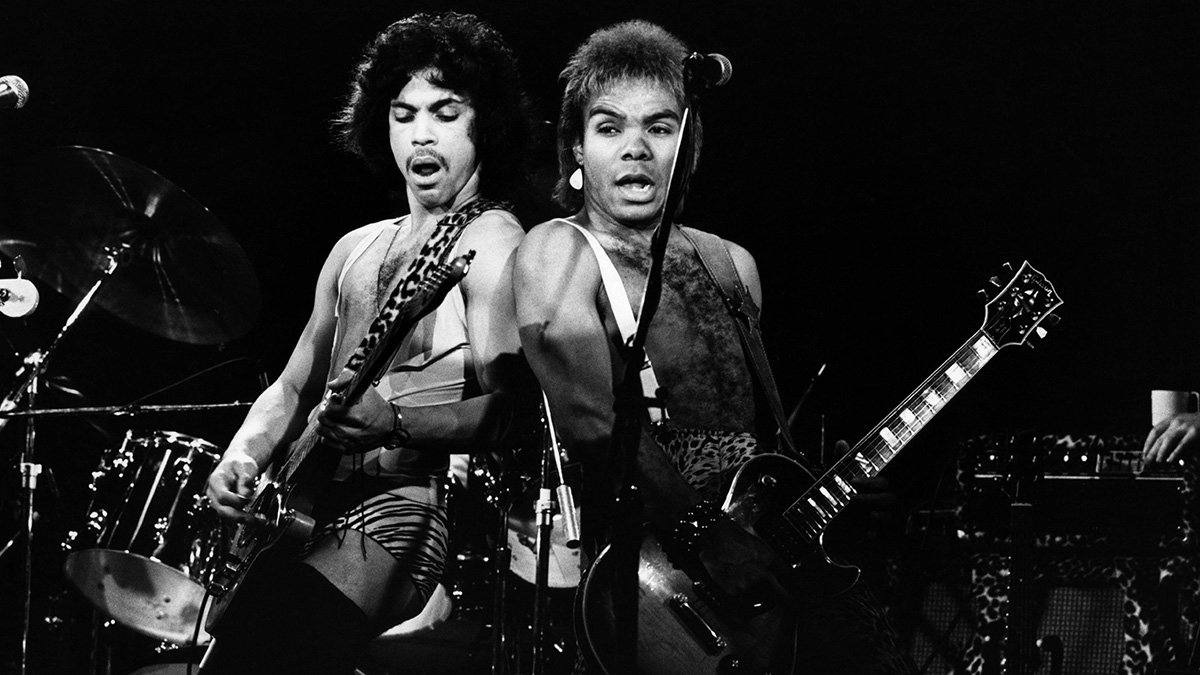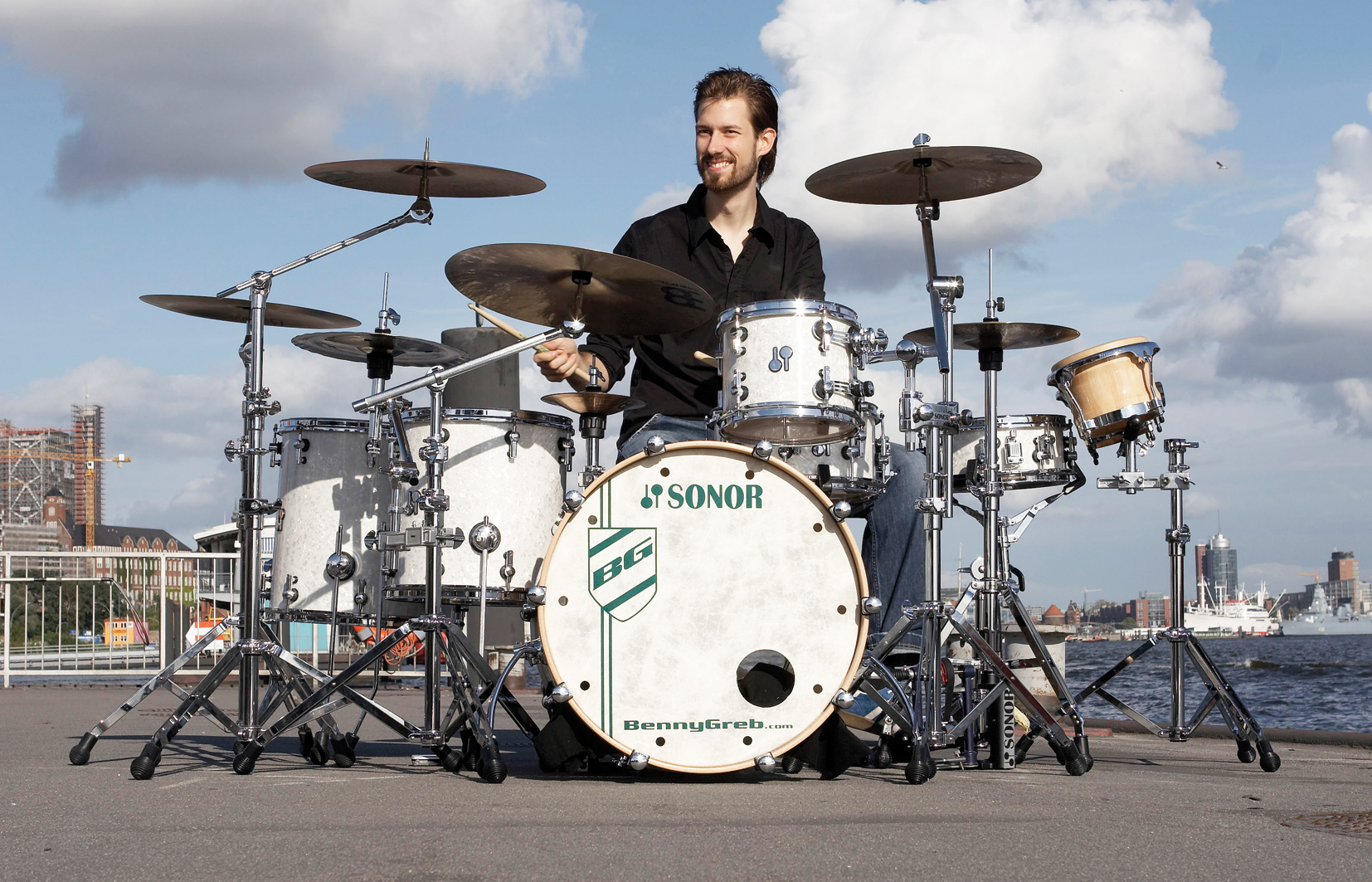
Play in the moment
To celebrate the festive season and to ensure you get your regular fix of drum goodness Rhythm will be posting a daily dose of all things drums. To kick things off we have a a few choice tips from Benny Greb...
From fusion to swing, funk to rock, Benny Greb approaches the drums with dexterity, articulation and creativity.
For anyone who feels stuck in a musical rut, Benny shares some insights in how to maximise the skills and vocabulary you already possess, the importance of the ‘how’ instead of the ‘what’, and playing what you must, not what you can. First things first...
“The number one tip that has served me really well is to focus on focus. A lot of us spend a lot of time not being in that moment and being able to act in the moment where music happens. We plan ahead or worry about what just happened. I recommend the book The Inner Game Of Tennis - that’s absolutely great. I was never a tennis freak, but it really deals with focusing on what matters in the moment and trusting yourself.”
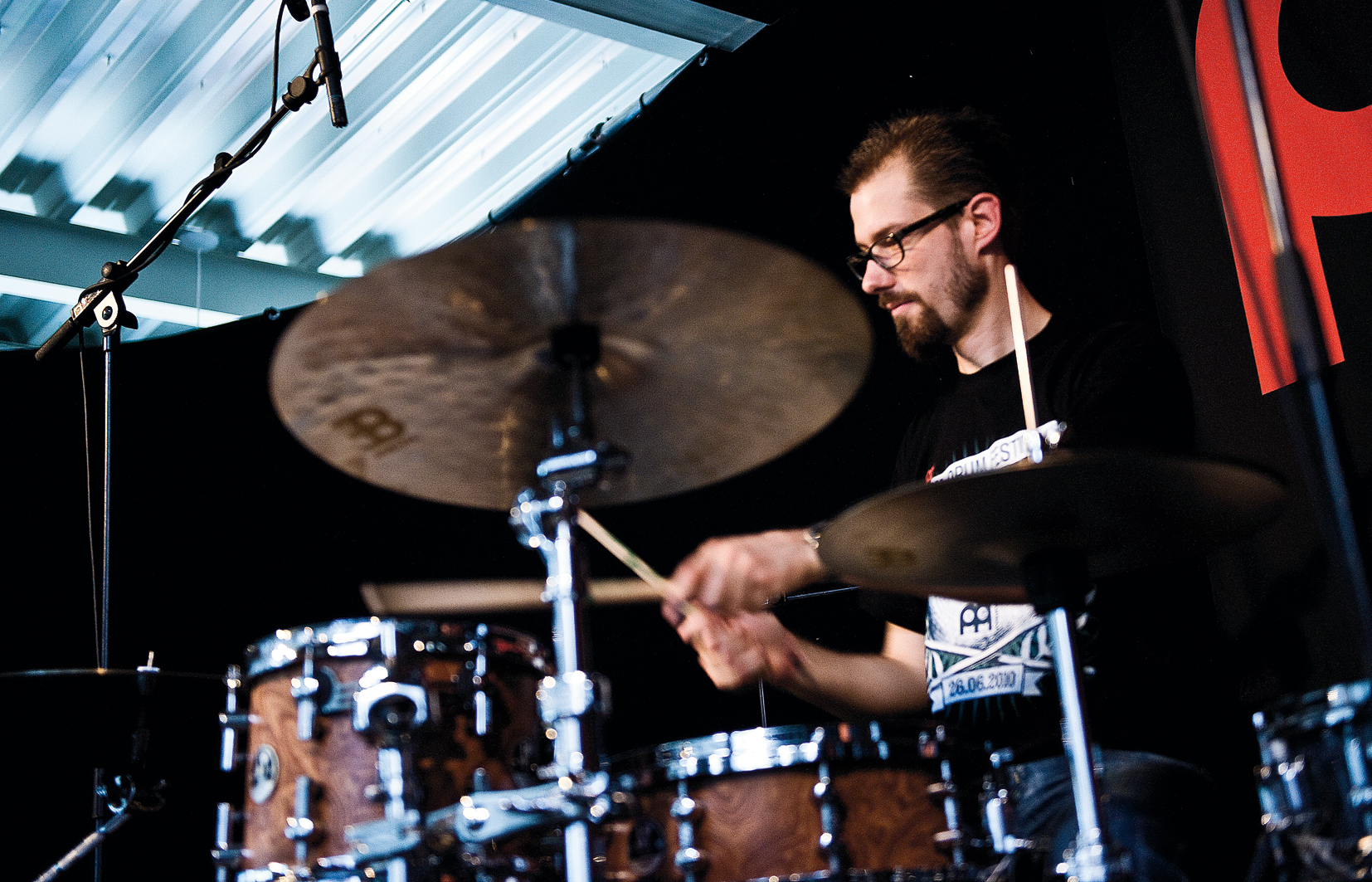
Vive la difference
“We want to get a different effect so think ‘I have to play something different'. But huge potential lies in, ‘OK, I play this and get a certain effect. I want a different effect so I’ll play the same thing differently’.
"Play with a different dynamic, a different approach or attitude. Guys like Steve Gadd are masters of that. They don’t have unlimited vocabulary and they don’t need unlimited vocabulary. They have vocabulary in terms of the emotions they can convey.
"The same fill can fit in a high intensity rock-pop song but can also fit in with a piano trio if played differently. Sometimes people are amazed by what you can get away with technique-wise or in terms of repertoire if the feel is right and something is played at the right moment.”
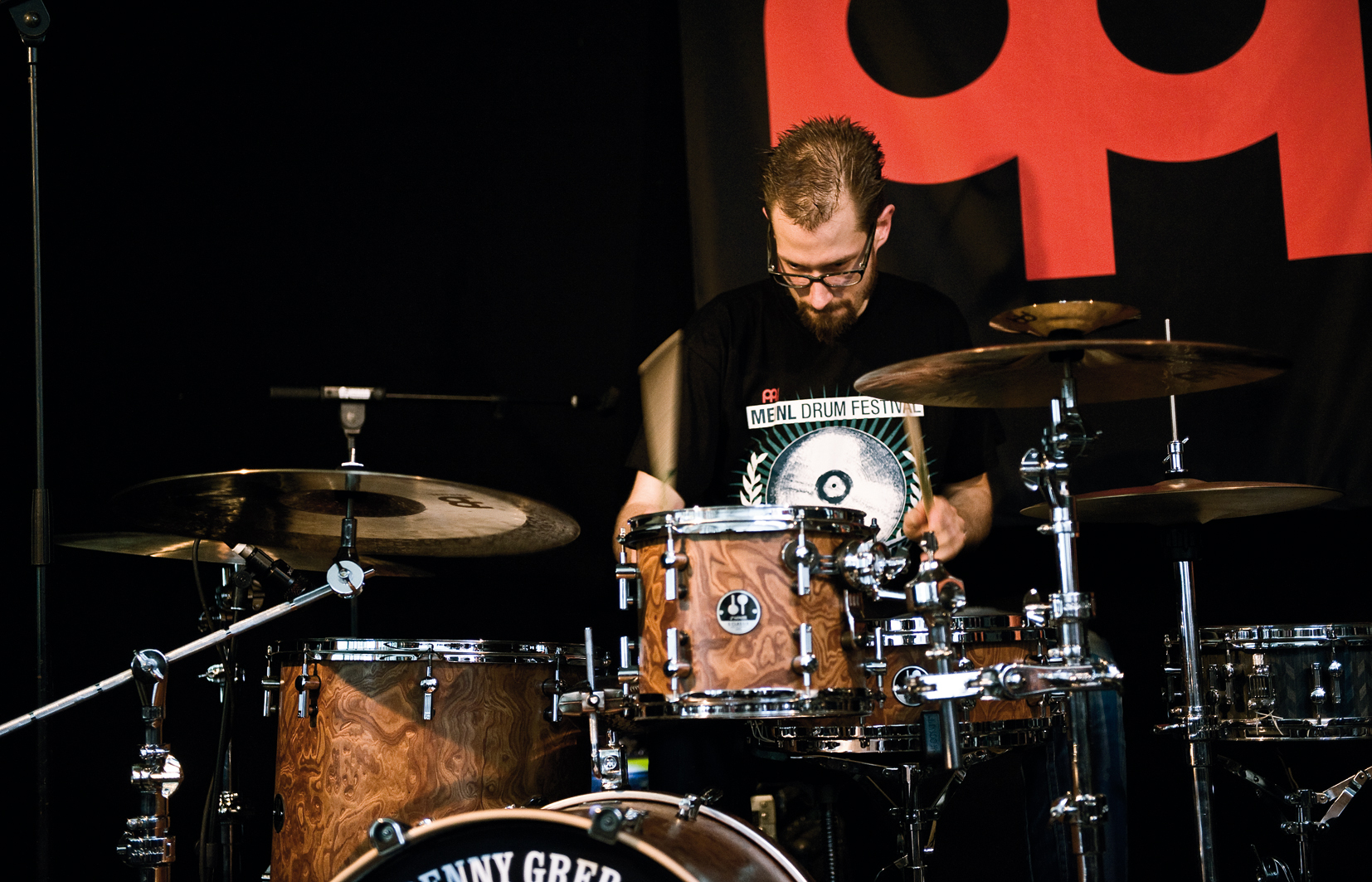
How, not what
“One of the most important things for me is to think not so much about ‘what’ I play as ‘how’ I play it. Then I’m in line with what goes on in the music
If you have a drum part that doesn’t work, you think, ‘I should place that snare hit somewhere else’, or ‘I should do more with the bass drum’, or ‘I should have a different pattern on the ride cymbal.’
"That is all the ‘what’. The ‘how’ would be, ‘Maybe it’s too heavy and that’s why it doesn’t work. Maybe I should play it more jazzy?’ I don’t fool around with the placement of the snare; I just pull back dynamic-wise and let the ride cymbal be the main instrument on this groove. Maybe you don’t have to come up with a different vocabulary or study more styles; maybe you just have to do it differently. Tune your snare drum differently. Use mallets instead of sticks. All that is a universe of possibilities that you can use besides the ‘what’.”
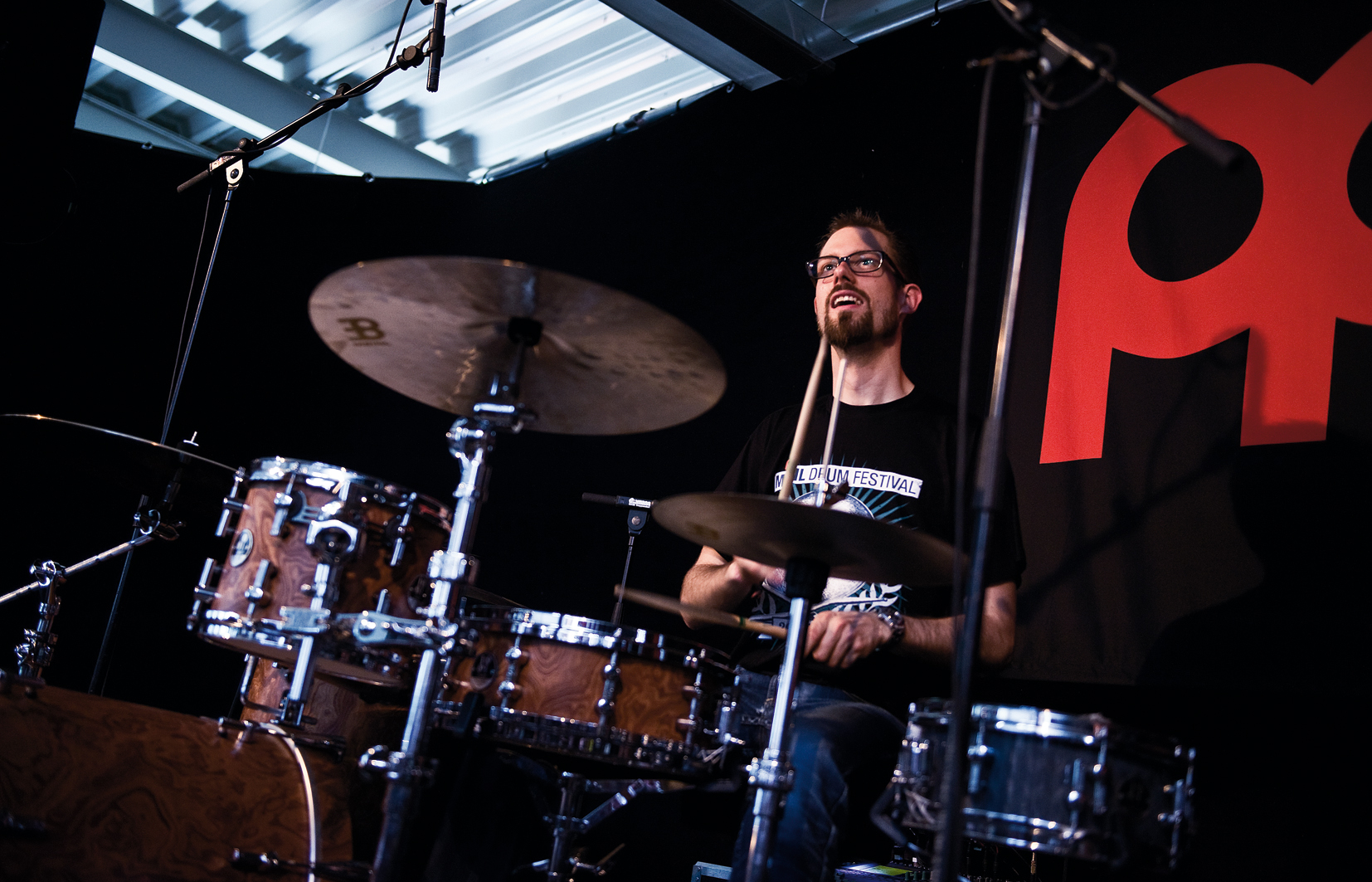
Be realistic
“For an extreme example, the punk band I had when I was a teen, we had a couple of presets on an effects board and we practiced a lot and then we got on stage and we couldn’t see the numbers on our effects boards anymore and it all went to hell.
"What we did then was we practiced in the dark, which sounds silly but it makes the point. What can you do while practicing that will be like playing live? Really think about: what is the result you want to get and what are you doing this for? Try to practice under those circumstances.”
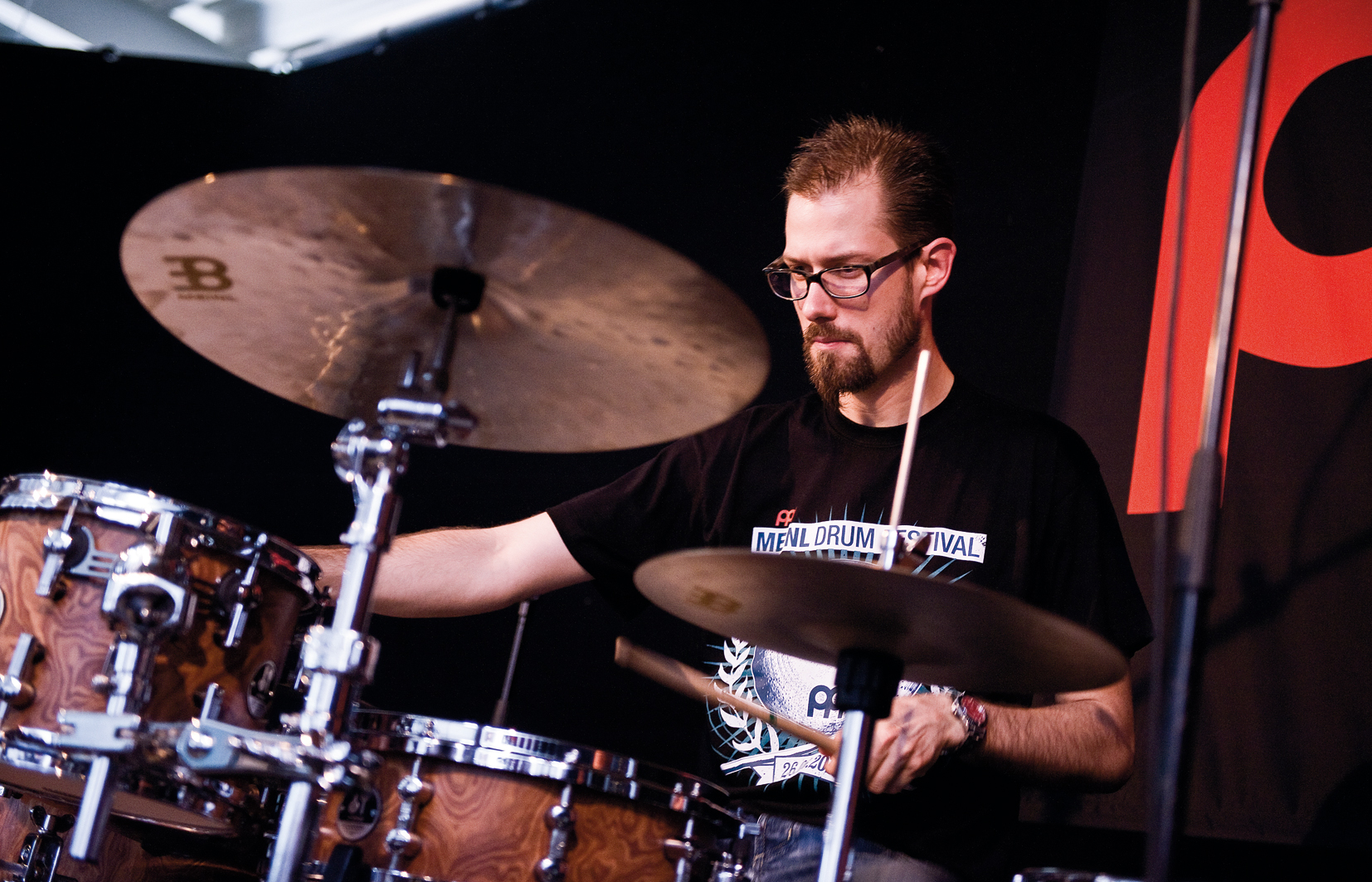
Make music
“Change your paradigm of a solo or a groove drummer. What the heck is a groove drummer? On YouTube people post videos of me where they say, ‘It’s a groove solo’. What is a groove solo? I never heard a trumpet player says he’s a ‘melody player’. If you can’t play melodies on that instrument you’re not really a trumpet player in the first place.
"We should be able to express ourselves on this instrument. If the other guys are not playing you can say something musical that doesn’t require anyone else to play. Maybe you can produce something that can stand on its own. That’s a level you should aspire to - I can make music with my instrument. It’s not about, ‘Oh no! I have to practise double bass and gospel chops!’ Maybe it’s playing grooves really well in a fashion that keeps people hooked until the eight bars are over. That’s also a drum solo.”
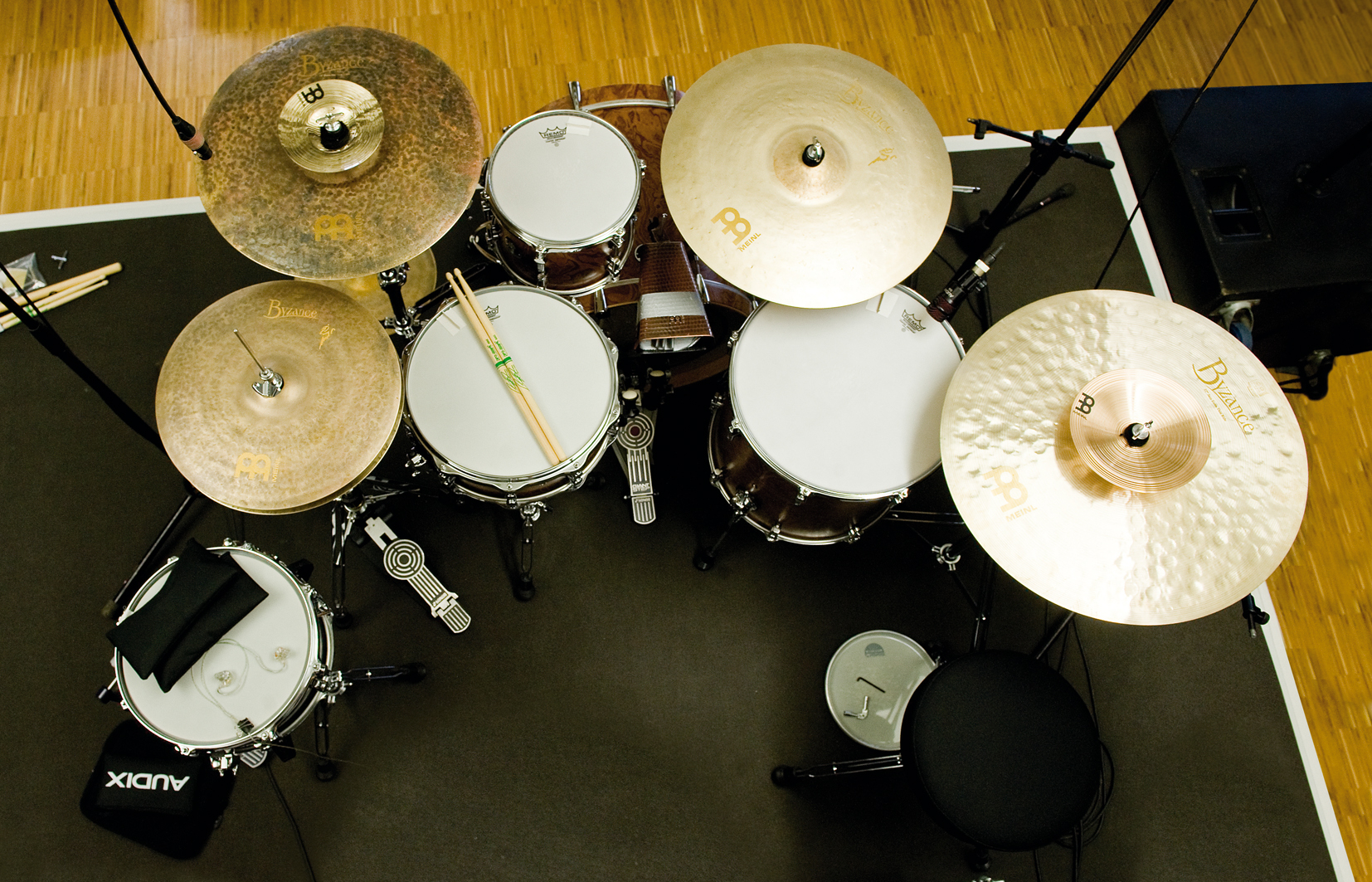
Play what you must
“There is a great quote from a conductor I heard once. He conducted the Berlin Philharmonic and he had a very loose style of conducting. Some conductors do very precise motions so you know where the time is, and there are others that just wave their hands around and make big motions and you don’t know what’s going on.
"One of the violinists stood up and said, ‘Excuse me, you’re great but when should I start to play? I don’t know when to start’. And the guy said, ‘When you can’t stand it anymore’. That’s such a good lesson because it deals with thinking about how little you can do and is everything you do of value? Play what you must play, not only want you want to play.”
“I’m sorry I ruined your song!”: Mike Portnoy hears Taylor Swift's Shake It Off for the first time and plays along... with surprising results
“Nile's riff on Get Lucky is a classic example of a funk riff, where the second of each 16th-note duplet is slightly delayed”: Locking down the theory of groove
“I’m sorry I ruined your song!”: Mike Portnoy hears Taylor Swift's Shake It Off for the first time and plays along... with surprising results
“Nile's riff on Get Lucky is a classic example of a funk riff, where the second of each 16th-note duplet is slightly delayed”: Locking down the theory of groove

